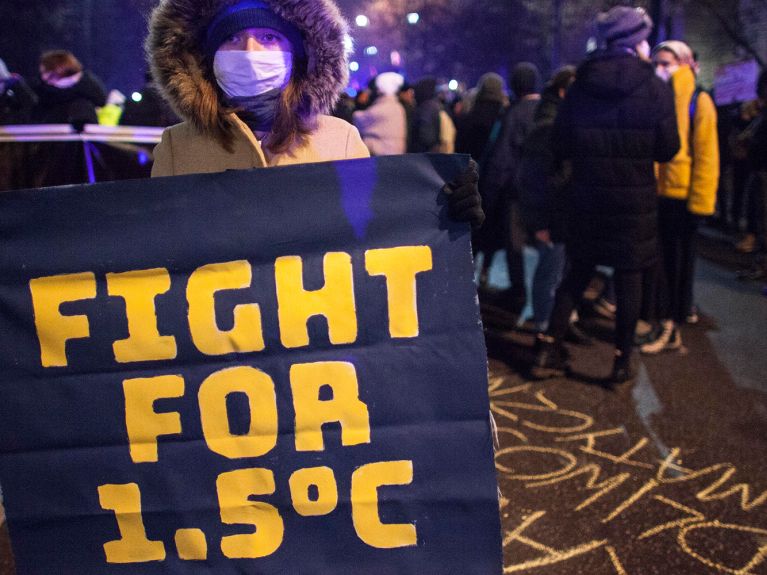Fighting for the 1.5-degree goal
Some 200 countries are looking for paths towards greater climate protection at the UN climate summit. Germany is playing a key role.

Heat waves, droughts, storms and flooding – the consequences of climate change have long been discernible worldwide, and the pressure on governments to act is correspondingly great. We explain what the main issues are at the COP26 climate summit and which climate protection goals are being pursued by Germany and the European Union:
What is being negotiated at the COP26 climate change summit in Glasgow?
At the UN climate conference some 200 countries will be deliberating on how to stop global warming. The 26th meeting of the conference is being held in Glasgow, Scotland, during November 2021. The so-called COP26 summit was meant to be held in 2020, but was postponed for a year because of the coronavirus pandemic. COP stands for Conference of the Parties, which refers to the parties of the treaty. As in earlier gatherings, the focus of attention in Glasgow will be especially directed at the large greenhouse gas producers China, the USA and the European Union.
The Paris Agreement of 2015 forms the basis for the climate talks. At that time the international community agreed to keep global warming to well below two degrees Celsius and, if possible, to limit it to 1.5 degrees. The summit in Glasgow will debate how this target can be achieved in concrete terms. It will also discuss how the industrialised countries will implement their pledge to make available 100 billion dollars a year for climate protection for the poorer countries that are often especially hard hit by climate change.
What are Germany’s and the EU’s climate action plans?
The Federal Government strengthened Germany’s climate protection legislation in 2021. Its targets are now more ambitious than before: by 2030 greenhouse gas emissions are to be reduced by 65% compared to their 1990 levels and greenhouse gas neutrality is to be achieved by 2045. The EU’s Green Deal aims to make Europe the first climate-neutral continent by 2050. How these goals can be achieved is the subject of intense debate in Germany and at the European level.
Why is this decade crucial for climate protection?
The coming years are considered crucial in deciding whether the impacts of climate change can still be kept under control. The current efforts are still insufficient. “We are nowhere near where the science says we should be,” explained Patricia Espinosa, Executive Secretary of the Secretariat of the UN Framework Convention on Climate Change, shortly before the summit in Glasgow. And she issued an urgent warning: “Overshooting the temperature goals will lead to a destabilised world and endless suffering, especially among those who have contributed the least to the (greenhouse gas) emissions in the atmosphere.”


